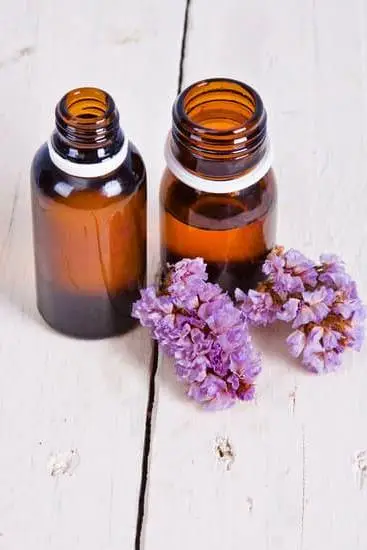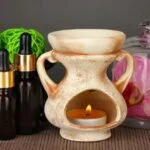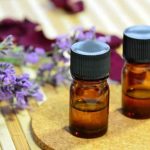Aromatherapy oils for bath have been used for centuries to promote relaxation, improve mood, and enhance overall well-being. The use of these essential oils in the bath can create a truly therapeutic experience, offering a wide range of benefits for both the mind and body.
In this article, we will explore the benefits and uses of aromatherapy oils for bath, including how different scents can affect your mood and energy levels, and the science behind how these oils work in a bath setting.
When it comes to choosing the right aromatherapy oils for your bath, it’s important to understand the different scents and their effects. From calming lavender and chamomile to invigorating peppermint and eucalyptus, each essential oil offers unique properties that can enhance your bathing experience. We will also delve into the process of creating your own custom blends to tailor your bath session to suit your specific needs.
The science behind aromatherapy is fascinating, as these potent oils have the ability to interact with our brain chemistry and nervous system when inhaled or absorbed through the skin. Understanding this process can help you maximize the benefits of using aromatherapy oils in your bath routine. Join us as we uncover the secrets behind harnessing the healing power of aromatic oils for a truly luxurious bath experience.
Choosing the Right Aromatherapy Oils for Your Bath
When it comes to choosing the right aromatherapy oils for your bath, it’s essential to understand the different scents and their effects. Each essential oil carries unique properties that can have varying effects on the mind and body, making it crucial to select the ones that align with your bath-time goals. Whether you’re seeking relaxation, energy, or a rejuvenating experience, there are numerous aromatherapy oils to choose from.
Understanding Different Scents
The first step in choosing the right aromatherapy oils for your bath is understanding the different scents available. Some popular options include lavender, chamomile, peppermint, eucalyptus, ylang-ylang, and lemon. Lavender is well-known for its calming and soothing properties, making it an excellent choice for relaxation and stress relief.
Chamomile is another gentle yet potent oil ideal for promoting a sense of calm and tranquility. On the other hand, peppermint and eucalyptus are invigorating scents that can help boost energy levels and clear the mind. Ylang-ylang and lemon are also known for their uplifting and energizing effects respectively.
Effects of Different Scents
Each scent has specific effects on the body and mind when used in a bath setting. Lavender and chamomile promote relaxation by easing tension, reducing anxiety, and inducing a state of peace. Peppermint and eucalyptus, on the other hand, are great choices for those looking to feel refreshed and invigorated after a long day.
Ylang-ylang can help uplift mood while lemon can offer mental clarity. Understanding these effects will help you choose the right aromatherapy oils to enhance your bath experience.
Mixing Your Oils
You may also consider mixing different aromatherapy oils to achieve a desired effect in your bath. For example, combining lavender with ylang-ylang can create a relaxing yet uplifting blend ideal for unwinding after a stressful day. Similarly, blending peppermint with lemon can produce an energizing concoction perfect for mornings or before a workout session. Experimenting with oil combinations can open up endless possibilities and allow you to customize your bath experience according to your current needs.
By understanding the different scents available, their effects on the mind and body, as well as how they can be mixed together effectively; you’ll be better equipped to choose the right aromatherapy oils for your bath based on your specific preferences and goals each time you indulge in this self-care ritual.
The Science Behind Aromatherapy
Aromatherapy is the practice of using natural oils extracted from flowers, bark, stems, leaves, roots or other parts of a plant to enhance psychological and physical well-being. When these aromatic compounds are released into the bathwater, they can provide numerous benefits to the mind and body. The science behind aromatherapy lies in the way these essential oils interact with our senses and our bodies.
Olfactory System and Aromatherapy
The olfactory system, also known as the sense of smell, is directly linked to the limbic system in the brain which controls emotions and memories. When inhaling aromatherapy oils for bath, the scent molecules travel through the nasal cavity and stimulate the olfactory nerves. This stimulation then triggers emotional and physiological responses in the body, which can result in relaxation, stress relief, or even an energy boost depending on the type of aromatherapy oil used.
Absorption of Essential Oils
In addition to their impact on our sense of smell, essential oils can also be absorbed through the skin when added to bathwater. The warm water helps open up pores and allows for easy absorption of these oils into the bloodstream. Once absorbed into the body, essential oils can have a range of therapeutic effects such as reducing muscle tension, improving circulation, or soothing skin irritations.
The Power of Aromachemicals
Many essential oils contain naturally occurring chemical compounds that have specific therapeutic properties. For example, lavender oil contains linalool which has sedative effects while eucalyptus oil contains eucalyptol known for its decongestant properties. These aromachemicals contribute to how aromatherapy oils work in the bath and play a crucial role in influencing our physical and emotional well-being. Understanding this science can help individuals choose the right essential oils for their desired outcome when taking an aromatherapy bath.
Top Aromatherapy Oils for Relaxation
Aromatherapy oils are a popular addition to bath time relaxation routines, offering numerous benefits for both the body and mind. When it comes to relaxation, certain scents are known for their calming and soothing properties. Lavender, chamomile, and ylang ylang are among the top aromatherapy oils for relaxation, each providing unique advantages for promoting a sense of peace and tranquility.
Lavender is perhaps the most well-known aromatherapy oil for relaxation, with its gentle floral scent known to reduce stress and anxiety. This oil has been used for centuries as a natural remedy for insomnia and is also effective in soothing sore muscles. Chamomile essential oil, derived from the daisy-like flowers of the chamomile plant, is another popular choice for promoting relaxation.
Its sweet, apple-like aroma can help calm the nerves and aid in achieving a state of deep relaxation. Ylang ylang essential oil, extracted from the flowers of the ylang-ylang tree, is revered for its exotic floral scent that can uplift mood and alleviate feelings of stress.
When incorporating aromatherapy oils into your bath routine for relaxation, consider mixing and matching these oils to create your own custom blend. Combining lavender with chamomile can enhance their soothing effects, while adding a few drops of ylang ylang can elevate the overall experience. Whether using these oils individually or in combination, their relaxing properties can help you unwind after a long day and promote better sleep quality.
- Lavender
- Chamomile
- Ylang Ylang
Energizing Aromatherapy Oils for Bath
When it comes to taking a bath, using energizing aromatherapy oils can help invigorate the body and mind, leaving you feeling refreshed and rejuvenated. The use of these specific essential oils in a bath can provide a wide range of benefits, from improving mental clarity to boosting energy levels. Here are some top choices for energizing aromatherapy oils for your next bath:
1. Peppermint: Known for its refreshing and cooling properties, peppermint essential oil is an excellent choice for an energizing bath experience. Its invigorating scent can help awaken the senses and provide a much-needed pick-me-up after a long day.
2. Eucalyptus: With its fresh and clean aroma, eucalyptus essential oil is widely used to promote feelings of vitality and well-being. Adding a few drops of this oil to your bath can help clear the mind and provide a refreshing bathing experience.
3. Lemon: The bright and citrusy scent of lemon essential oil is perfect for boosting energy and uplifting the mood. Its stimulating properties make it an ideal choice for those looking to feel more alert and revitalized during their bath time.
When using these energizing aromatherapy oils for bath, it’s important to dilute them properly to avoid skin irritation or sensitivity. Additionally, always perform a patch test before using any new essential oil in the bath to ensure that you don’t have an adverse reaction. By following these tips, you can safely incorporate these energizing essential oils into your bathing routine for a truly invigorating experience.
Aromatherapy Oil Blends for the Ultimate Bath Experience
Aromatherapy oils for bath are a great way to enhance your bathing experience and promote relaxation, rejuvenation, and overall well-being. One of the best things about using aromatherapy oils in the bath is that you can create custom blends by mixing and matching different scents. This allows you to tailor your bathing experience to your specific needs and preferences.
When creating your own aromatherapy oil blends for the ultimate bath experience, it’s important to consider the properties of each essential oil. For example, lavender is known for its calming and soothing effects, while eucalyptus is invigorating and can help clear the sinuses. By understanding the different scents and their effects, you can combine oils to achieve your desired outcome.
Some popular aromatherapy oil blends for the bath include mixing a few drops of lavender with chamomile for a relaxing and stress-relieving soak. For an energizing bath, try blending peppermint with lemon or eucalyptus. The possibilities are endless, and experimenting with different combinations is all part of the fun when it comes to creating your own custom aromatherapy oil blends.
| Relaxing Blend | Energizing Blend |
|---|---|
| Lavender | Peppermint |
| Chamomile | Eucalyptus |
| Ylang Ylang | Lemon |
Tips for Using Aromatherapy Oils Safely in the Bath
When using aromatherapy oils for bath, it is important to remember that these potent and concentrated oils must be used with caution and care. Dilution is key when using essential oils in the bath, as direct application can cause skin irritation or sensitization.
It is recommended to mix a few drops of your chosen essential oil with a carrier oil such as coconut oil, almond oil, or jojoba oil before adding it to the bathwater. This not only helps to distribute the oil more evenly in the water but also reduces the risk of skin irritation.
Moreover, there are certain precautions that should be taken into consideration when using aromatherapy oils in the bath. It is advisable to perform a patch test on a small area of your skin before using a new essential oil in your bath, especially if you have sensitive skin or allergies. Additionally, pregnant women, individuals with certain medical conditions, and children should consult with a healthcare professional before incorporating aromatherapy oils into their bath routine.
Dos and don’ts when using aromatherapy oils in the bath are also important to keep in mind. Do start with a minimal amount of essential oil and adjust according to your preference and tolerance. Do use high-quality, pure essential oils from reputable sources to ensure safety and effectiveness.
Don’t use more than the recommended amount of essential oil, as this can overwhelm the senses and may lead to adverse reactions. Lastly, don’t forget to thoroughly mix the diluted essential oil in the bathwater before soaking to avoid direct contact with undiluted droplets.
By following these tips for using aromatherapy oils safely in the bath, you can enjoy the benefits of these natural remedies while minimizing potential risks.
DIY Aromatherapy Bath Oil Recipes
If you’re looking to take your bath experience to the next level, creating your own DIY aromatherapy bath oil blend can be the perfect way to do so. By customizing your own luxurious blend, you can tailor the scent and benefits to your specific needs and preferences. Whether you’re seeking relaxation, energy, or even relief from muscle tension, crafting your own aromatherapy oil blend can provide a spa-like experience right in the comfort of your own home.
To start creating your own DIY aromatherapy bath oil blend, you’ll first need to select the essential oils that best suit your desired outcome. For relaxation, consider using lavender, chamomile, or ylang ylang essential oils.
These calming scents have been shown to help reduce stress and promote a sense of tranquility when used in a bath. If you’re looking for an energizing effect, peppermint, eucalyptus, and lemon essential oils can provide a refreshing and invigorating experience in the bath.
Once you’ve chosen your desired essential oils, it’s important to dilute them properly before adding them to your bath. Essential oils are highly concentrated and should never be applied directly onto the skin undiluted. To create a safe and effective blend for your bath, mix a few drops of your chosen essential oils with a carrier oil such as jojoba, almond, or coconut oil.
This will not only help disperse the essential oils evenly in the water but also prevent any potential skin irritation. With these simple steps, you can create a personalized aromatherapy bath oil recipe that is both safe and effective for use in your daily bathing routine.
Conclusion
In conclusion, incorporating aromatherapy oils into your bath routine can offer a myriad of benefits for both your physical and mental well-being. By choosing the right oils, understanding their effects, and embracing the science behind aromatherapy, you can elevate your bathing experience to a luxurious and healing ritual. Whether you’re looking to relax after a long day or energize yourself for the day ahead, there are various essential oil options that cater to your specific needs.
The top aromatherapy oils for relaxation such as lavender, chamomile, and ylang-ylang can help soothe stress and promote a sense of calm. On the other hand, energizing oils like peppermint, eucalyptus, and lemon can invigorate and refresh your mind and body. By experimenting with different blends and scents, you can create a personalized bath experience that aligns with your mood and preferences.
It’s important to note that safety is paramount when using aromatherapy oils in the bath. Dilution, precautions, and adhering to dos and don’ts are crucial in ensuring an enjoyable and risk-free experience.
Furthermore, exploring DIY aromatherapy bath oil recipes provides an opportunity to unleash your creativity and customize your own luxurious blend for a spa-like experience at home. Ultimately, embracing the healing power of aromatherapy oils in your bath routine can be a transformative self-care practice that contributes to overall wellness.
Frequently Asked Questions
What Essential Oils Are Good for a Bath?
Essential oils that are good for a bath include lavender, chamomile, eucalyptus, and peppermint. These oils can promote relaxation, relieve muscle tension, and provide a pleasant aroma during bath time.
Which Oil Is Best for Oil Bath?
The best oil for an oil bath is jojoba oil. It is known for its moisturizing properties and doesn’t leave a greasy feeling on the skin. Jojoba oil also helps in balancing the skin’s natural oils, making it suitable for all skin types.
How Do You Use Aromatherapy Oil in the Bath?
To use aromatherapy oil in the bath, simply add a few drops of your chosen essential oil to a carrier oil or directly into the bathwater. Swirl the water to disperse the oils and enjoy the aromatic experience while you soak in the tub.
Just be cautious not to add too much as essential oils are highly concentrated and can irritate the skin if used in large quantities.

Are you looking for a natural way to improve your health and wellbeing?
If so, aromatherapy may be the answer for you.





